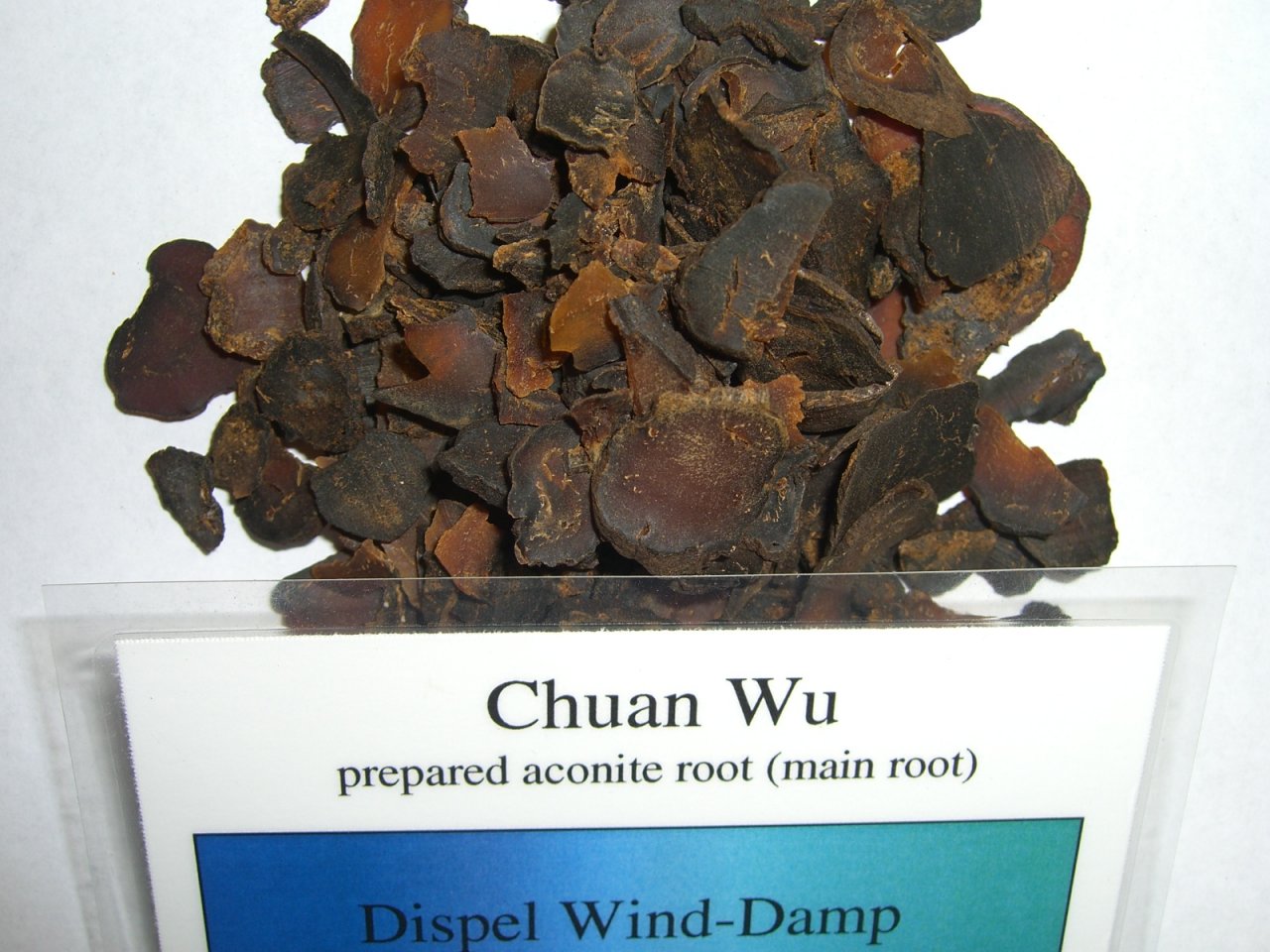Chuan Wu

  | Chuan Wu in TCM:Explore the properties of Chuan Wu according to Chinese
Nutrition and Traditional Chinese Medicine (TCM):
Factoids:
English Name: aconite wutou, Sichuan aconite, mother root of common monks hood
Pharmacuetical Name: radix aconti preparate
Properties: extremely toxic,
acrid, bitter, hot
Temperature: hot
Channels: SP, HT, LV
Flavors: toxic, bitter, pungent
Special Properties:
disperses cold, clears damp, disperses wind, reduces swelling, alleviates bi syndrome
Alternate Forms:
- fu zi - is the accessory root of the main
root, used to warm the interior. Chuan Wu is the main root itself. Chuan
Wu is generally vetter to dispel cold and relieve pain than fu zi, but
more toxic and less tonifying.
- cao wu (Radix Aconiti Kusnezoffii) - a wild form, very toxic
- wu tou - this term refers to either chuan wu or cao wu
Actions / Indications:
- Expels wind-damp-cold; relieves pain (cold in chest
or abdomen - wind cold damp bi; intense headache; pain from trauma.
Can be used internally or applied externally)
- Reduces swelling; breaks up hardness (use externally
for hard swellings, yin boils and carbuncles)
Special Notes:
- Extremely toxic, mild cases of overdose
can be relieved by consuming 120g of honey dissolved in water.
Contraindications: - (cc: pregnancy)
- (antagonist w/ xi jiao)
Disclaimer: In accordance with our terms of service, by using this web site you agree that none of the information found on this web site constitutes medical advice. You should always consult your doctor before trying any particular food or herbal remedy to treat disease.
Folk remedies presented on this site are designed to address specifc TCM diagnoses, and are not one-size-fits-all. If you would like to learn more about Traditional Chinese Medicine (TCM) and how it relates to Chinese Nutrition, you can book in a free call with a licensed professional. There is no obligation to purchase.
[CLICK HERE for your free INITIAL CONSULTATION] |

